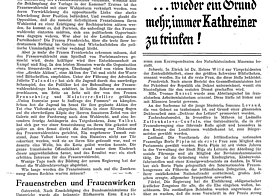Annual maintenance work will take place again this summer, which is why the reading rooms at the Heldenplatz location and in all collections will be closed from Friday, July 25, to Tuesday, August 5, 2025.
Due to the shutdown of the ordering system, no media orders can be accepted from Thursday, July 24, 2025, 4 p.m. to Tuesday, August 5, 2025, 4 p.m. The regular opening hours will then apply again from Wednesday, August 6, 2025.
The study room of the Albertina is closed from July 15 to August 15. During this time (except July 25 to August 5), media ordered from the Albertina collection will be transported twice a week (Monday and Thursday) to the reading rooms of the National Library on Heldenplatz and can be used there.
Starting August 1, 2025, the State Hall will open at 9 a.m.
Due to an event, the State Hall will be closed on August 4, 2025.
The history of the struggle for political rights in France is marked by a significant event: the French Revolution. It became the symbol of the revolt by the population at large against the ruling class. In reality, revolutionaries welcomed women as comrades-in-arms but continued excluding them from human and civil rights. In 1792 Olympe de Gouges formulated the “Declaration of the Rights of Woman and of the Female Citizen”. She argued that if women could be condemned to die by the guillotine, they were also entitled to a share in political decisions. A year later, she too was executed. Her writings remained forgotten for a long time.
In the revolutionary movements of 1830 and 1848, women experienced an awakening which was apparent not only in their participation in the insurrections, but also in the founding of women’s newspapers and clubs. But the women’s clubs which had demanded universal suffrage and equality before the law from the provisional government in 1848 were soon banned. In the Paris Commune of 1871 women did not just stand at the barricades, they reiterated their demands for equality. The Commune Council remained a council of men, there was not a single woman among the 90 members.
A women’s rights movement emerged in the second half of the 19th century. Hubertine Auclert is considered one of its most important activists. In 1876 she was one of the founders of the first women’s suffrage society in France. She argued the case in articles, hundreds of petitions and public speeches for full civil rights for women in every field.
In the 20th century, legislative bills for women’s suffrage failed several times due to the resistance of deputies in the National Assembly. In 1919 the House of Deputies approved women’s right to vote, but the Senate did not. It was first and foremost the radical liberals who considered women incapable of making political decisions and feared that the poll would hand the advantage to the Catholic Party. In the end, women were granted the right to vote in 1944 by decree of Charles de Gaulle.



